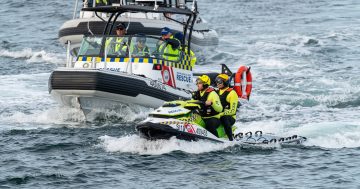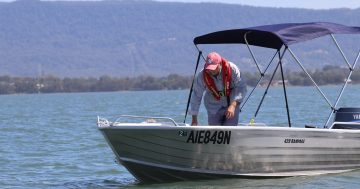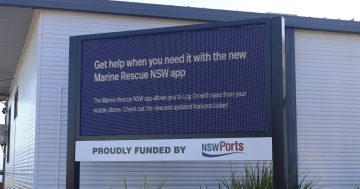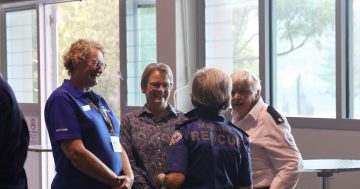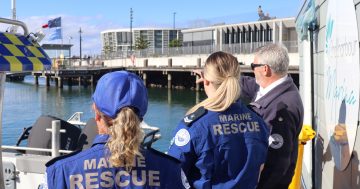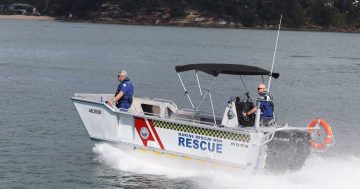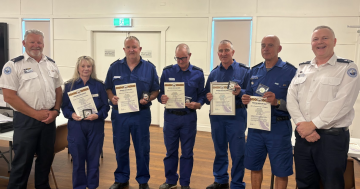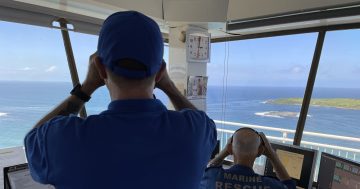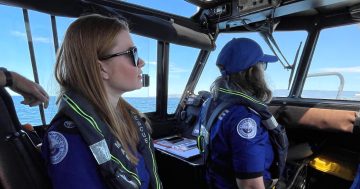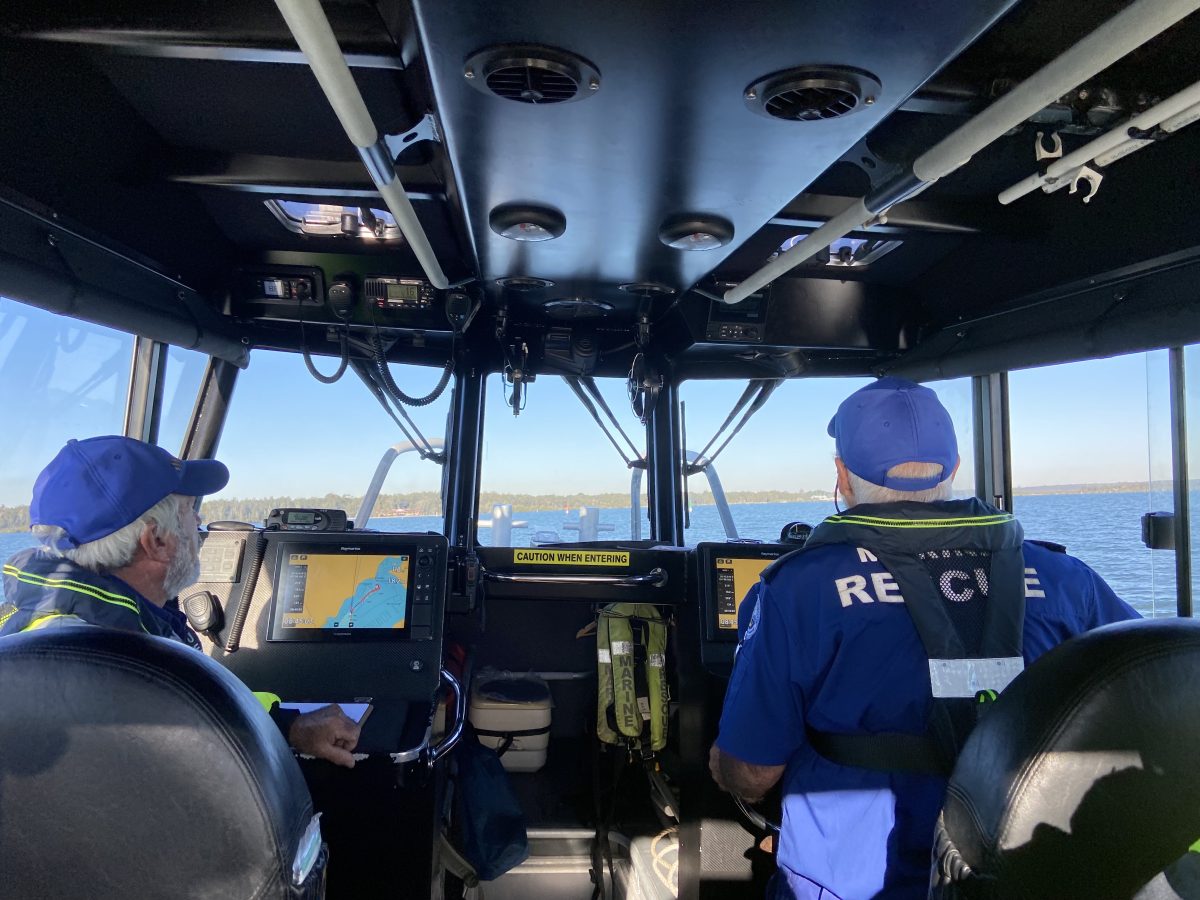
Marine Rescue volunteers on the water. The organisation is calling for more volunteers to help with its critical rescue work. Photo: Marine Rescue NSW.
Marine Rescue Shellharbour is used to helping out people in trouble, but the group itself is now calling for help.
With Marine Rescue attending a record 265 calls for help in July, the group needs new volunteers to help on the boats as well as on land in the office.
Marine Rescue NSW is on call 24/7 to keep the boating community safe through its 45 units up and down the coast, at Lord Howe Island and also on the inland waterways of the Alpine Lakes and Murray River.
Richard O’Connor is the Shellharbour Unit Commander and has been with Marine Rescue for 20 years, continuing his family’s links to volunteering after his father was involved with the Royal Volunteer Coastal Patrol.
“I treat my unit like my family,” he said.
“I’m always there for them whenever they need it and they’re always there for me.”
For new volunteers to Marine Rescue, it means volunteering one weekend a month. While a love of the water and boats is ideal, it’s not a deal-breaker.
With all the training provided, volunteer work with Marine Rescue is primarily on the boats with crews to help rescue people, but other roles include administration, finance and media.
Potential recruits can go out on a “test run” to see if they like it.
“It helps to see whether you like us, we like you and whether we think you’re going to be suited to the role or not,” Richard said.
“If it’s not for you, it’s not for you.”
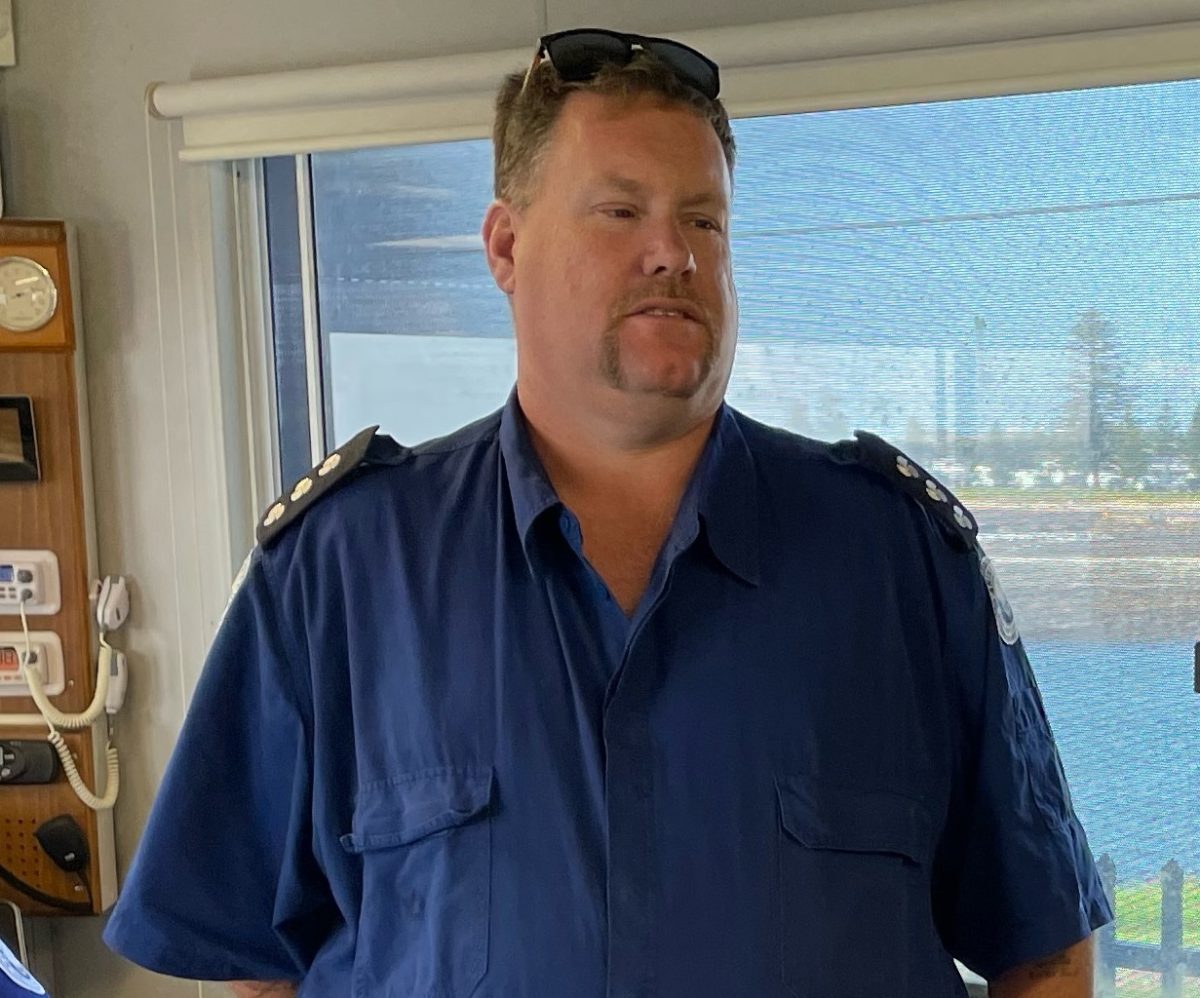
Marine Rescue Shellharbour Unit Commander Richard O’Connor has been with the organisation for 20 years. Photo: Marine Rescue NSW.
Richard said a number of recent rescues were due to lack of boat maintenance, a flat battery or being out of fuel.
“Boats aren’t used as often as they should, and their owners think ‘we’ll be right’,” he said.
“They should really be checking to make sure their boat is seaworthy before they hit the water. For example, making sure the battery is charged properly.”
Marine Rescue Commissioner Alex Barrell reinforced the safe boating message.
“While many people think boating is just for the warmer months, the record number of rescues that we’ve seen in July goes to show that boating is a year-round activity,” he said.
“We ask all boaters to make sure they check their vessel regularly and ensure they have the right safety equipment and an appropriate amount of reserve fuel on board.
“It only takes seconds for a flat battery in the offshore environment to turn into a life-threatening situation.”
Marine Rescue gets some funding from the government, but most of the day-to-day support comes from fundraising.
“Mostly all of our funding comes through barbecues, donations or grants,” Richard said.
“If we can get grants through the government, it’s mainly to replace the engines or fix up the buildings, but the money that we do get operationally-wise is basically through the community.”
Marine Rescue asks all boaters to log on when they head out to sea, via the free Marine Rescue app or on marine radio VHF channel 16
“When a boater logs on, it ensures that we start searching for them if they don’t return as planned, it is a simple process and one that could save a life,” Alex said.
More information on volunteering with Marine Rescue is available here.









